achromatic – again
This post is about a 21km walk from Jiuguan to Baijing. It snows for the first time, and I see my first bit of the Great Wall.
Everything was white, and it was… SNOW!!
I said goodbye to the friendly farmers where I had spent the night:
Then I rushed out the door.
G307 was mine today:
I didn’t expect this kind of weather would be a problem for anybody, but absolutely nothing moved on the road, no cars, no bikes, no people – except for me.
So I strolled around, sometimes on the right side of the road, sometimes on the left, and sometimes in the middle. And nobody was there to honk my exotic ass out of the way, ha!
Then I saw my first bit of the Great Wall 长城 on this trip:
This section is called Guguan 固关, and it has been restored and opened up as a park. You’d have to buy a ticket to get in. That is, during the tourist season you would.
Since everything was closed and I was desperate to go in anyways, a kind soul showed me a way around the main gate:
I love the Great Wall. I know it’s cheesy to come to China and love the Great Wall, and I know the thing is no architectural masterpiece, and that it was built with blood. But I love it anyway.
Eventually I had to climb back down and continue walking, though.
village temples
People had been telling me that I would find a lot of traditional things in Shanxi, and it was true:
These gentlemen from a tiny stone village called Baimujing 柏木井 were so kind as to open up their temple for me, so I could have a look and take some pictures:
This wasn’t a tourist attraction. It wasn’t historically protected or dedicated to any specific religion. It was just the private temple of a small mountain village. What I really liked about it was the feeling of lived spirituality and living tradition that I found there.
This was their temple. I liked that thought.
Further down the road that I had to walk from Jiuguan to Baijing I got the kid-shot for the day:
Like a strawberry in all the black & white outside. She was a bit shy, but her friend was having all the more fun.
And I found something else that was interesting:
This was in a small restaurant next to my hotel. The hand belongs to the woman who was waiting tables.
me: “What’s that?”
girl: “Oh, that’s a tattoo!”
me: “A Buddhist symbol?”
girl: “I don’t know.”
me: “…or is it from Germany?”
girl: “Ah?”
me: “You don’t know?”
girl: blushes.
me: “Well, what is it then?”
girl: “…I just thought it looked nice!”
Now it’s 23:05. My hands are freezing. Typing is not much fun that way.
You might have already guessed it:
I have managed to find a hotel without heating – again.
It’s not that they don’t HAVE a radiator here. Two guys in blue collars have been running about the place trying to fix the damn thing for the last three hours.
Now they’re telling me the job is done.
It should get warmer in a while.
I really hope it will.

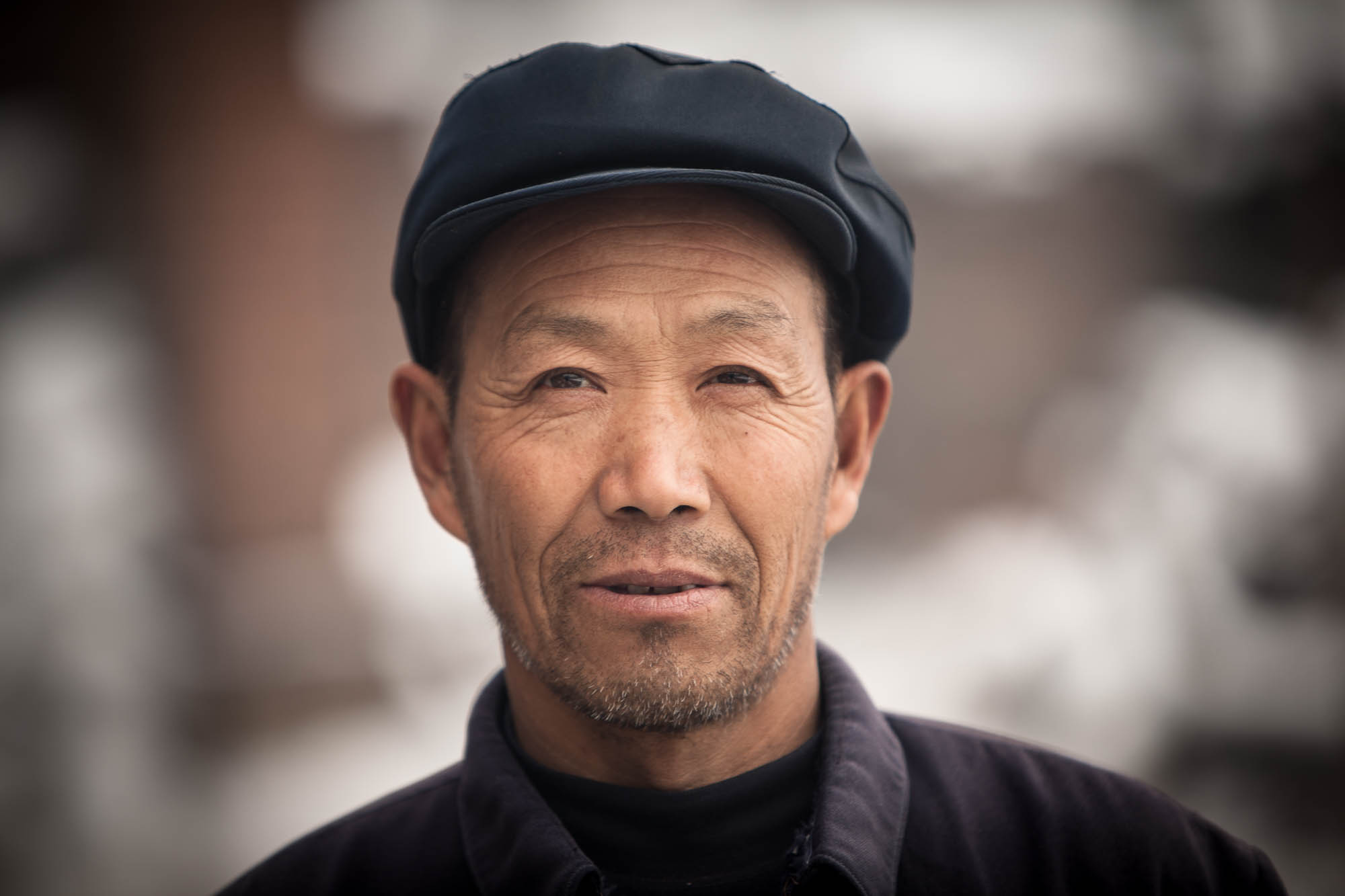
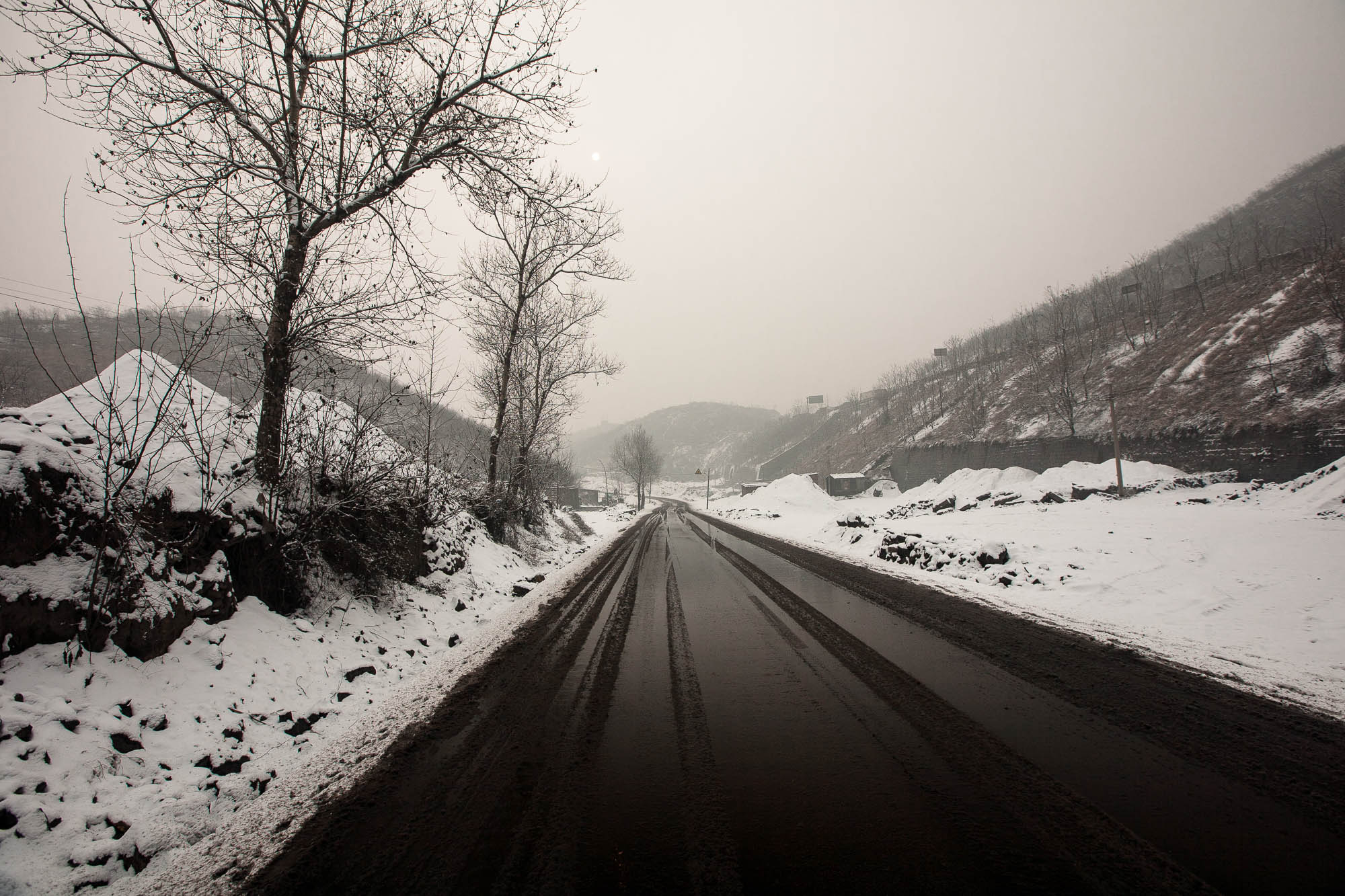
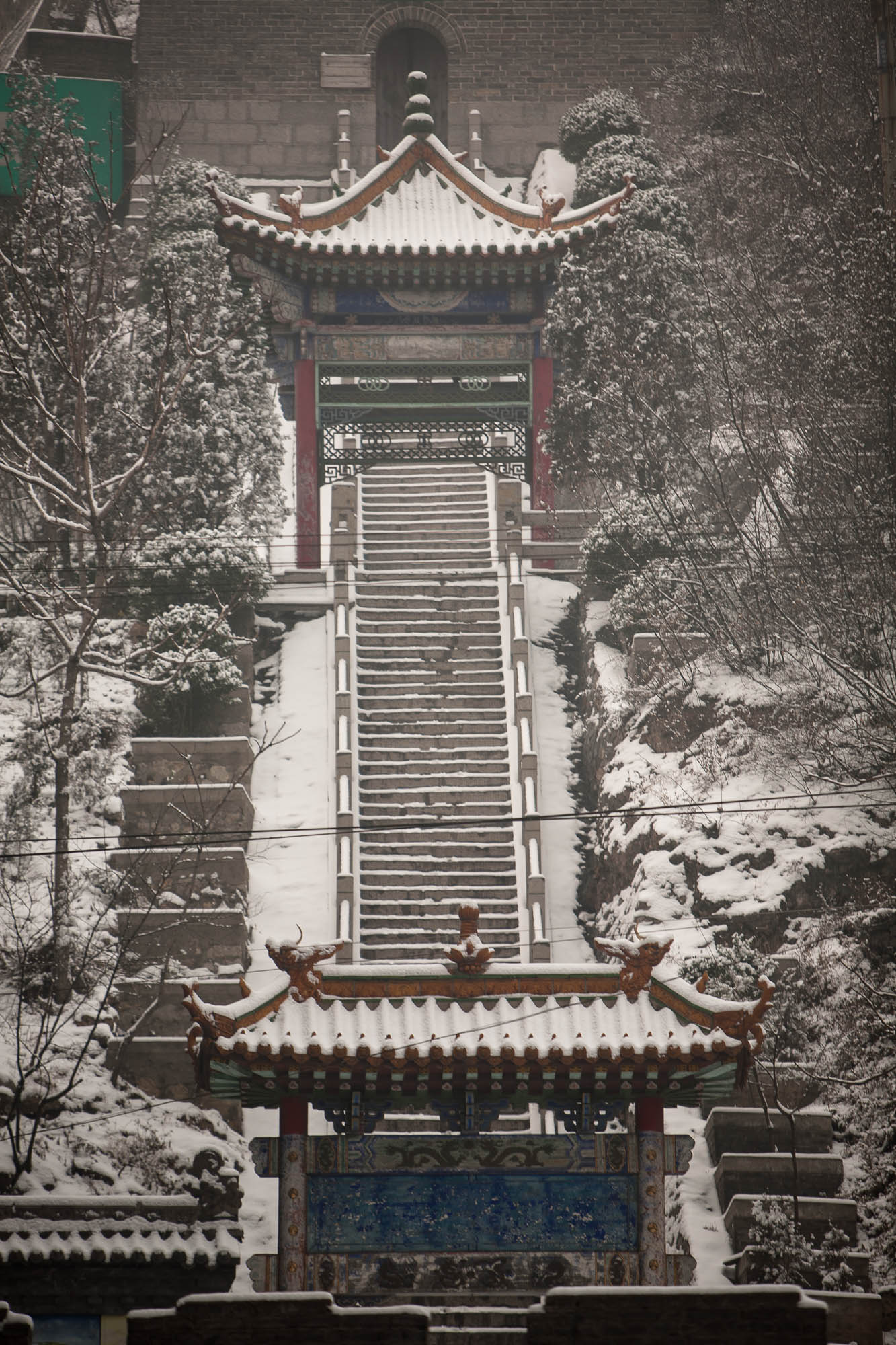
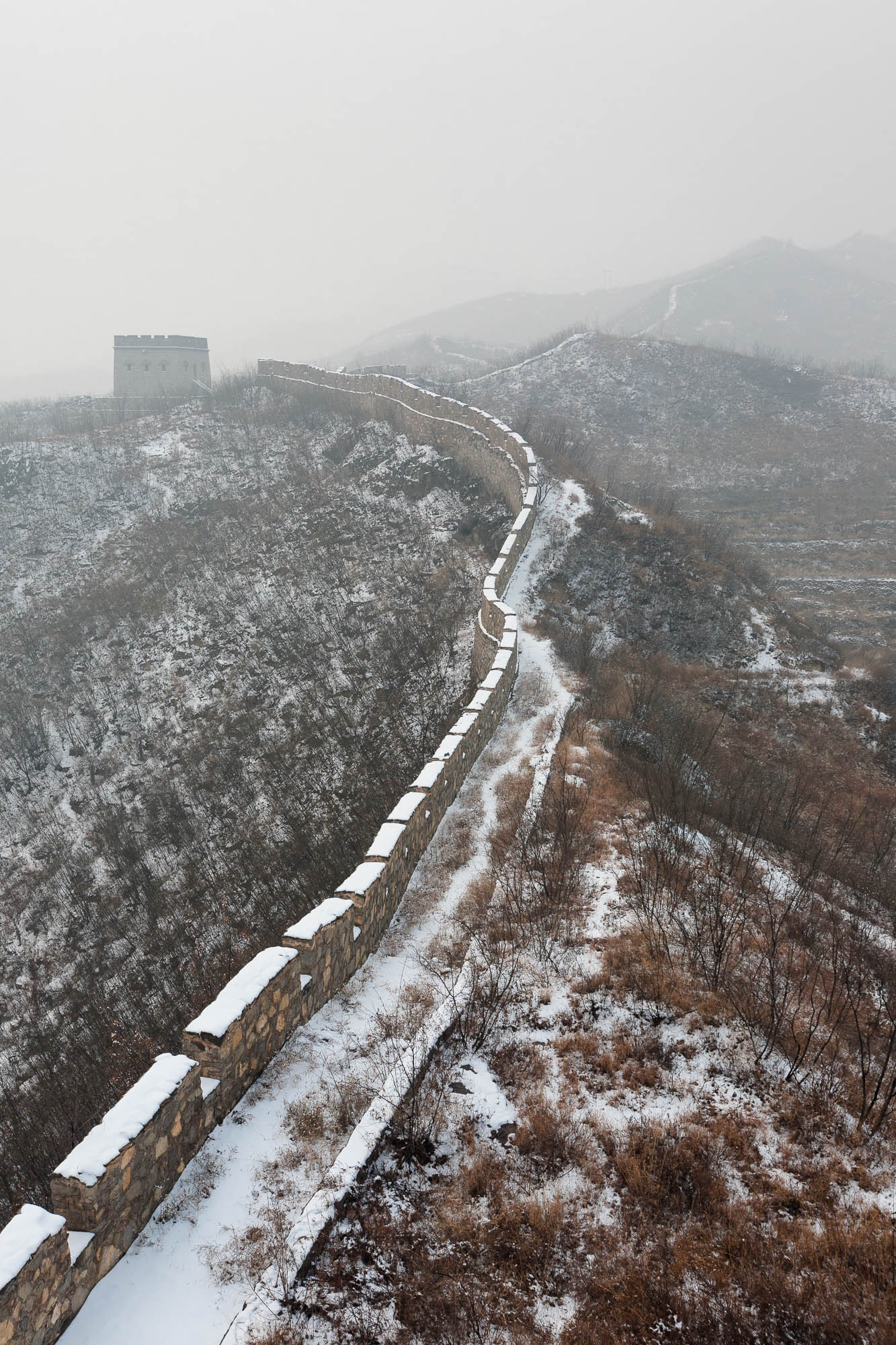
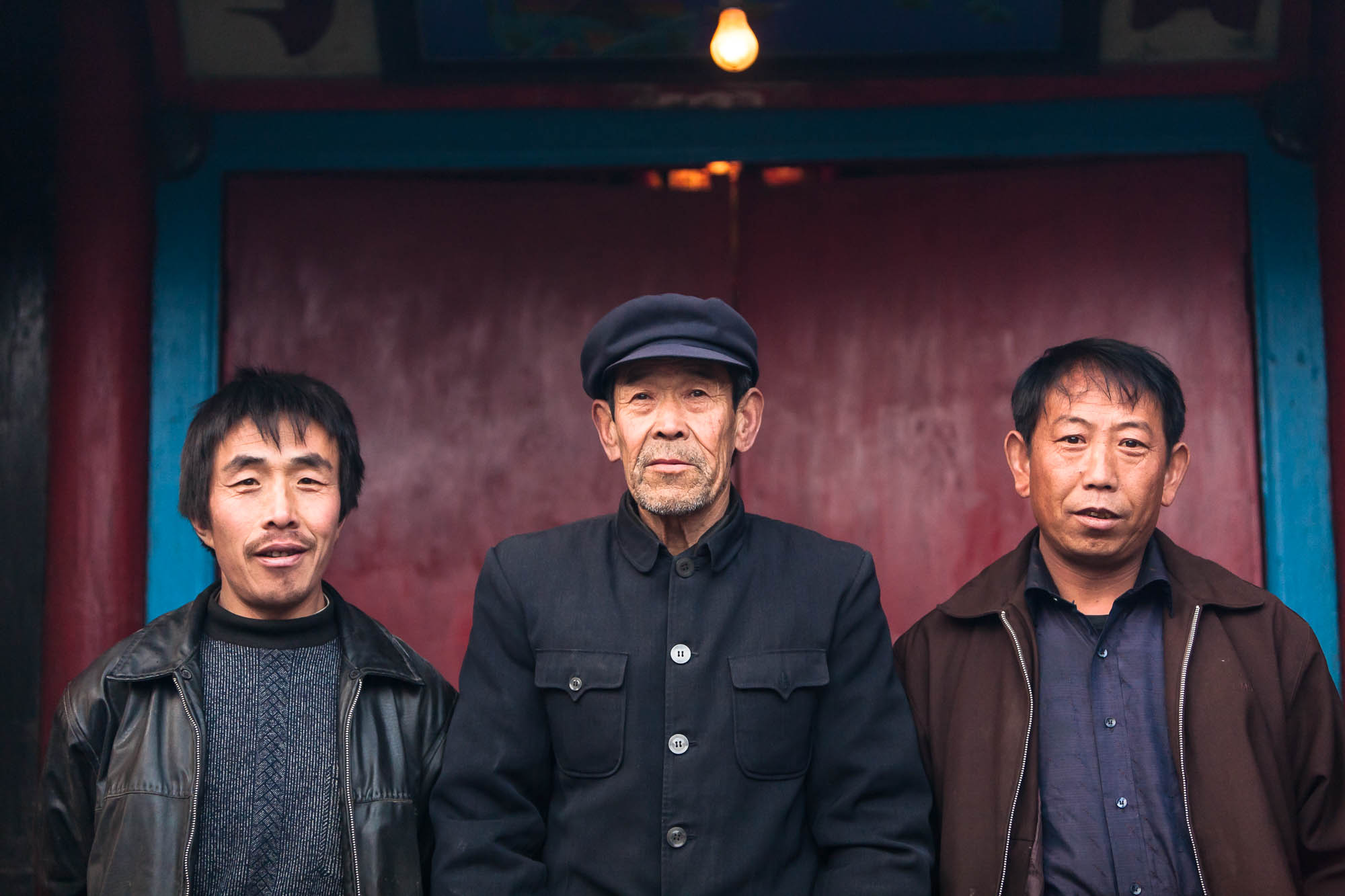
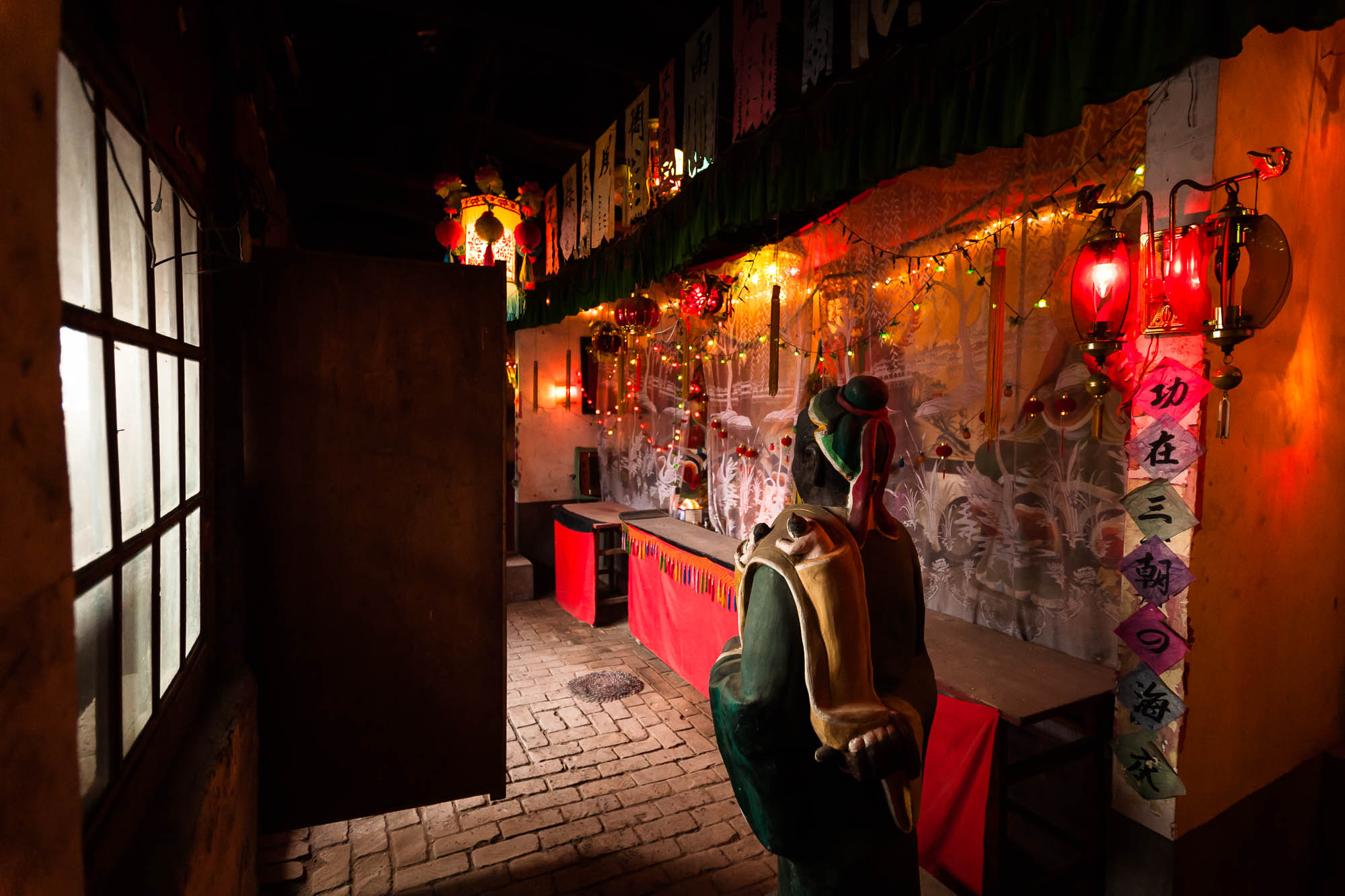
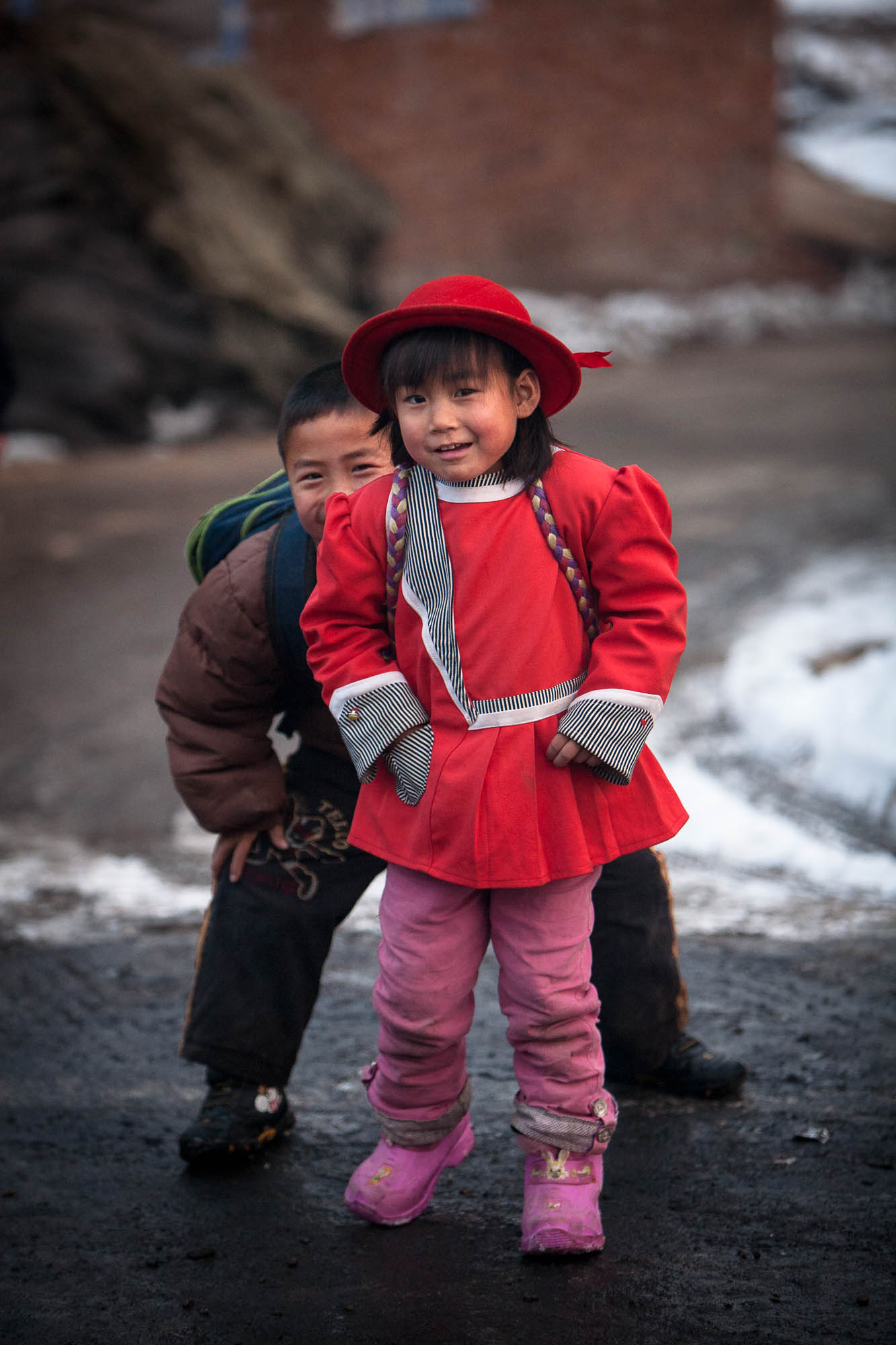
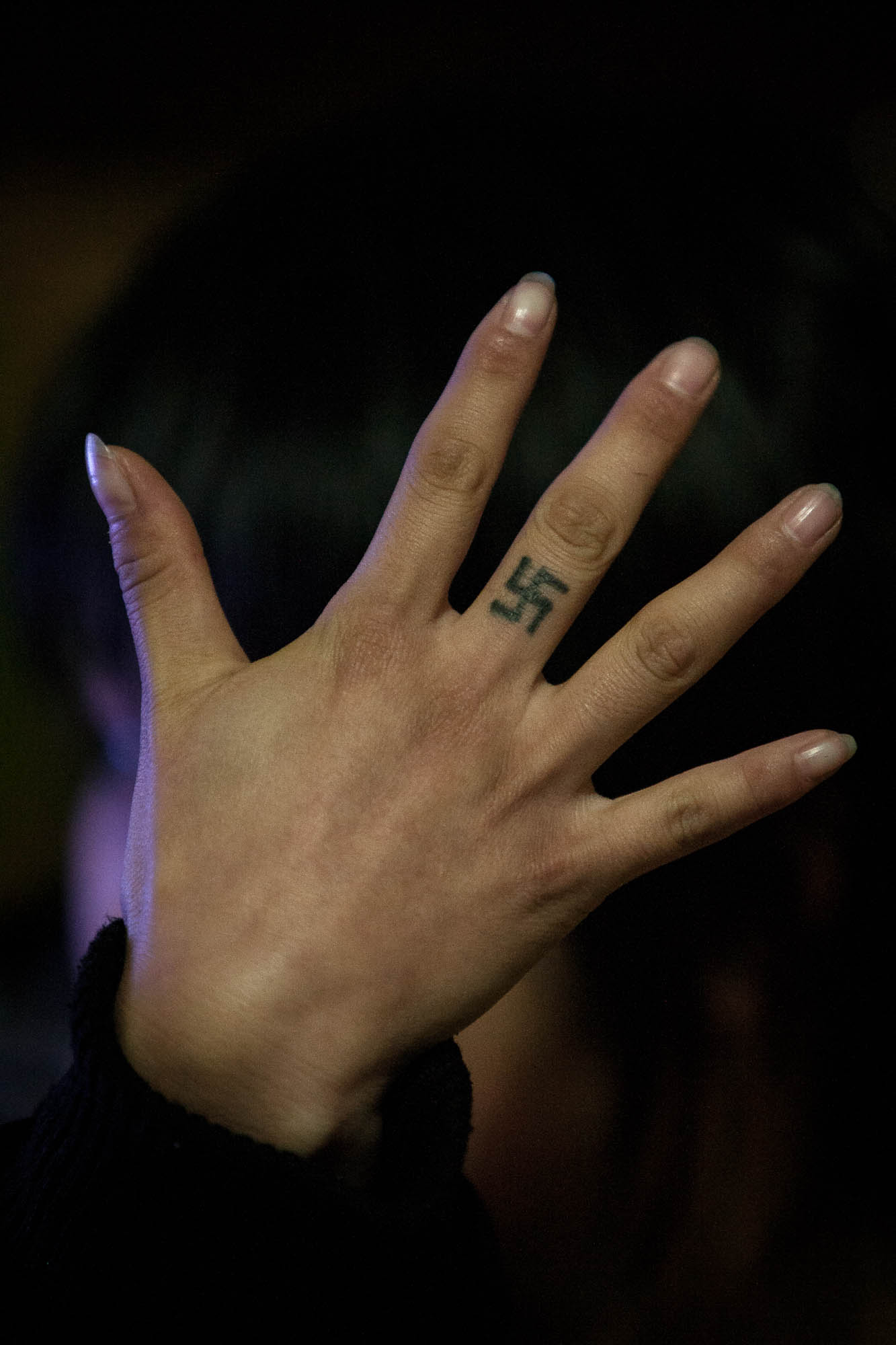
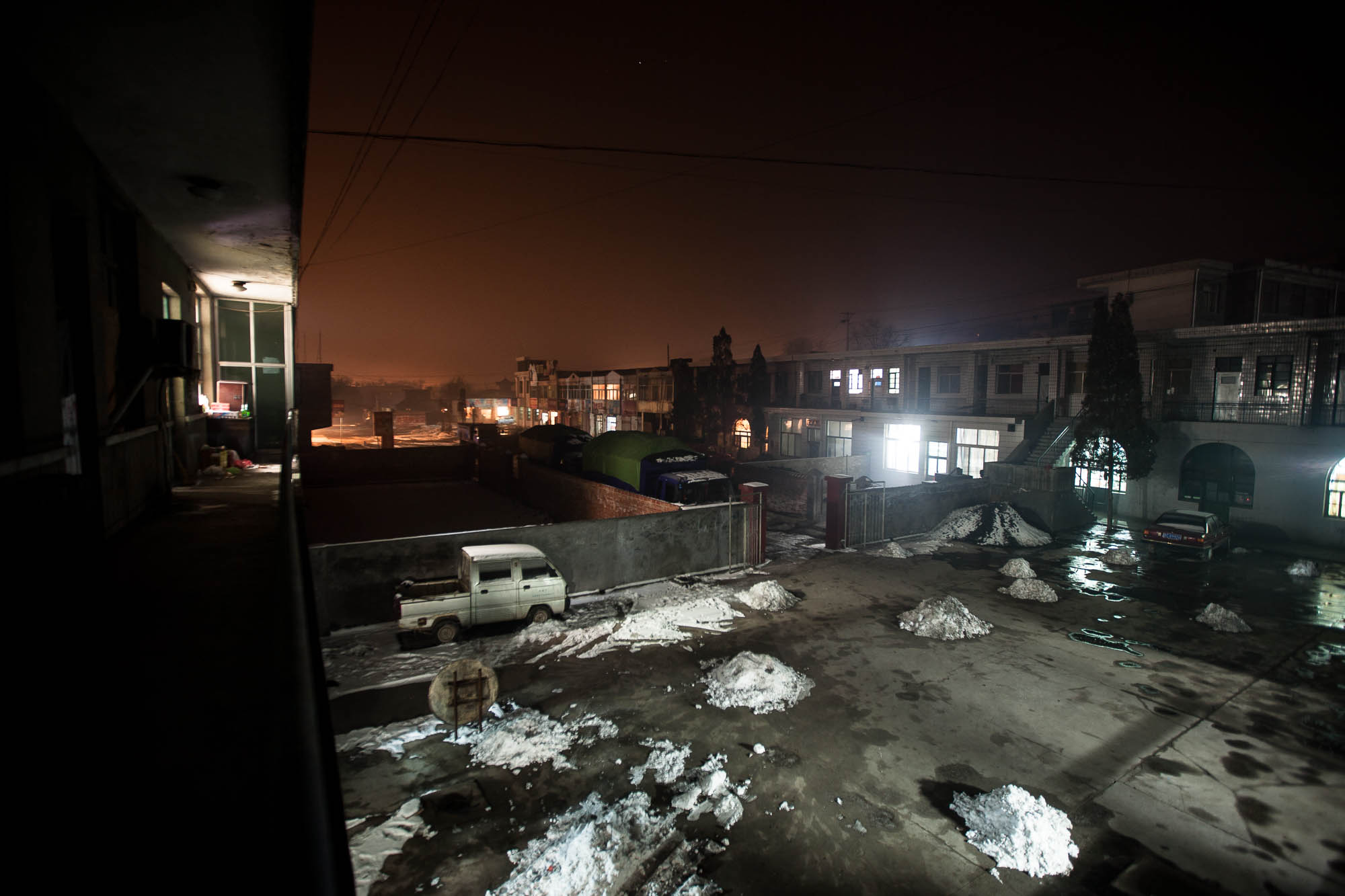
BOWER
Exotic ass ??? Is exotic a special Chinese description for monstrously ???
Hailey
she really got a tattoo of something that she didn't know the meaning of? Seriously?
Wanda
Amazing things you are doing & seeing; I can't stop worrying about you tho…be careful & stay warm!
Lilu
Da kichert der Deutsche in China verschämt…
wuhsi
bow: das habe ich mich auch schon immer gefragt: exotic ass? wtf does he mean? jetzt versteh ich…
sipf: deine bilder sind so gigantisch wie dein exotic…
– kleiner Gruß aus der Heimat, hehe – keep on walking with your head held high
wuh
Anand-Gua
I like most of the pictures,I have not seen snow for many years.Kanton is warm and sunny in winter.
Lonely is the same.
Christoph
BOWER: "farewell in blue" vom 27.11.2007! 😉
Hailey: I seriously believe she did. Really.
Wanda: Don't you worry, I am in a good warm spot tonight!
Lilu: Kichernde Deutsche sind das beste wo gibt.
wuhsi: Soll ich das als Kritik oder als Lob verstehen?
Anand-Gua: Lonely is warm and sunny??
Anand-Gua
Warm and sunny can't change the feeling of lonely.
Christoph
I would rather be lonely in the sun than lonely under a cover of snow.
monica chen
“卐”是上古时代许多部落的一种符咒,在古代印度、波斯、希腊、埃及、特洛伊等国的历史上均有出现,后来被古代的一些宗教所沿用。最初人们把它看成是太阳或火的象征,以后普遍被作为吉祥的标志。
随着古代印度佛教的传播,“卍”字也传入中国。这个字梵文读“室利踞蹉洛刹那”,意思是“吉祥海云相”,也就是呈现在大海云天之间的吉祥象征。它被画在佛
祖如来的胸部,被佛教徒认为是“瑞相”,能涌出宝光,“其光晃昱,有千百色”。中国佛教对“卍”字的翻译也不尽一致,北魏时期的一部经书把它译成“万”字,唐代玄奘等人将它译成“德”字,强调佛的功德无量,唐代女皇帝武则天又把它定为“万”字,意思是集天下一切吉祥功德。
“卍”字有两种写法,一种是右旋,—种是左旋(“卐”)。佛家大多认
为应以右旋为准,因为佛教以右旋为吉祥,佛家举行各种佛教仪式都是右旋
进行的。这个被佛教徒视为吉祥和功德的具有神秘色彩的符号,竟被德国
法西斯头子希特勒用来做了他的党旗标志。当然这与佛教毫无关系。希特
勒亲自设计的党旗为红底白圆心,中间嵌一个黑色“卐”字。希特勒对他
们设计非常满意,认为“这是一个真正的象征”。他在《我的奋斗》一书
中说:“红色象征我们这个运动的社会意义,白色象征民族主义思想。
‘卐’字象征争取雅利安人胜利斗争的使命。”后来,希特勒还为他的冲
锋队员和党员设计了“卐”字臂章和“卐”字锦旗。
Christoph
谢谢你的解释!
wuhsi
der vergleich hinkt ein bischen, aber du kannst ihn als kompliment auffassen.
wuhsi
Christoph
Ok, Komplimente sind gut. Ich mag ja Kritik, aber nicht an meiner Person. Und Humor finde ich auch toll, solange die Verlachten die andern sind.
Dawid Krysiak
One word about the gird and a tatoo. It's of course strange, that she doesn't know what the symbol means, but…
Swastika is old chinese symbol of sun. It were european/german nacionalists who adapted it as a facism symbol. In China it's meaning whas totally different. Have a read at here http://en.wikipedia.org/wiki/Swastika
Btw. Your walk is awesome 🙂
Christoph
thanks david, i appreciate comments like this, i believe they take my blog to another level! :)